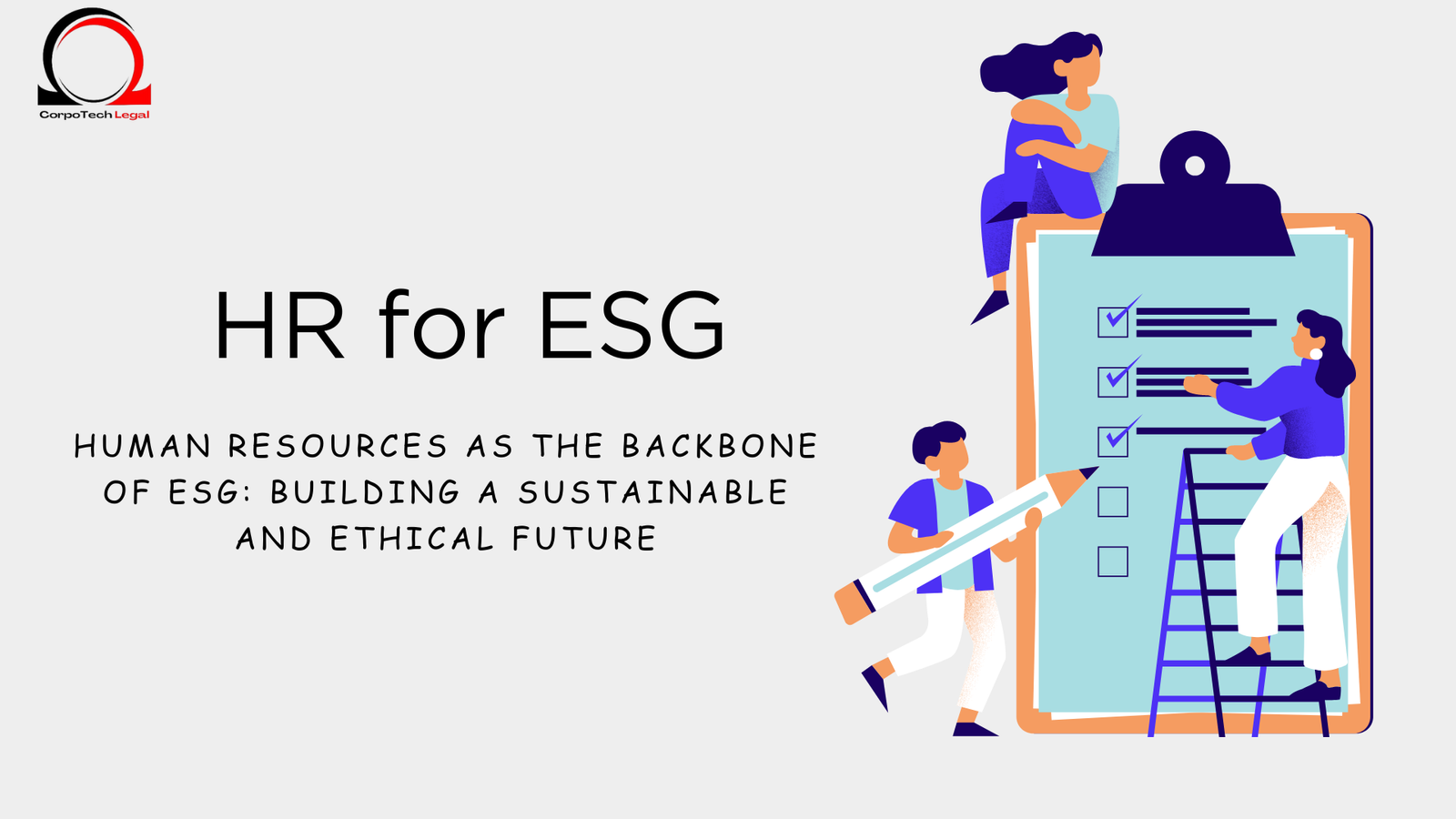In today’s increasingly conscious world, the focus on a company’s impact extends far beyond its bottom line. Environmental, social, and governance (ESG) factors are no longer just buzzwords; they’re becoming critical metrics for investors, customers, and, most importantly, employees. This shift presents a unique opportunity for Human Resources (HR) to step up and become the driving force behind an organization’s ESG journey.
The Future of HR: Sustainable and Impactful
By embracing ESG, HR can transform from a cost center to a strategic partner, driving positive change throughout the organization. In doing so, HR professionals can not only contribute to a more sustainable and ethical future but also position themselves as leaders in the evolving landscape of work.
HR’s role in ESG is not just about ticking boxes; it’s about creating a meaningful impact. But HR team needs to polish their skills to be the champions of the ESG drive in the company.
ESG: A Framework for a Better Future
ESG stands for Environmental, Social, and Governance. It’s a framework used to assess a company’s commitment to sustainability and ethical practices.
- Environmental: This pillar examines a company’s impact on the planet, including its energy use, waste management, pollution levels, and resource consumption.
- Social: This focuses on a company’s relationship with its employees, community, and stakeholders. It considers factors like diversity and inclusion, employee well-being, human rights, and community engagement.
- Governance: This looks at a company’s leadership structure, internal controls, risk management practices, and ethical conduct. It assesses transparency, accountability, and board diversity.
HR: The ESG Champion
Traditionally, HR has focused on recruitment, talent management, and employee relations. However, in the age of ESG, HR’s role takes on a new dimension. It becomes the bridge between an organization’s internal practices and its external impact. Here’s how HR can champion ESG:
- Attracting and Retaining Top Talent:
In today’s competitive talent market, attracting and retaining top talent hinges on more than just salary and benefits. Employees increasingly seek employers who align with their values and prioritize sustainability and ethical practices. HR can leverage this by:
- Implementing diverse and inclusive hiring practices.
- Offering competitive benefits that cater to employee well-being, such as mental health support and flexible work arrangements.
- Creating a culture of transparency and open communication.
- Developing career development opportunities that align with ESG goals.
- Fostering a Sustainable Workforce:
A sustainable workforce is not just about reducing carbon footprint. It’s about creating a healthy and engaged work environment that promotes employee well-being and productivity. HR can contribute by:
- Training employees on sustainability practices, such as energy conservation and waste reduction.
- Promoting healthy lifestyles through wellness programs and initiatives.
- Offering employee assistance programs to address mental health concerns.
- Encouraging flexible work arrangements to reduce commuting emissions.
- Promoting Ethical Conduct:
Building trust and ensuring ethical conduct are crucial for long-term success. HR can play a vital role by:
- Establishing clear policies on ethical behavior, covering areas like anti-discrimination, harassment, and conflicts of interest.
- Providing regular anti-discrimination and harassment training.
- Creating safe and confidential channels for employees to report concerns.
- Holding leaders accountable for upholding ethical standards.
- Measuring and Reporting Progress:
Transparency is key to building trust and demonstrating commitment to ESG. HR can help by:
- Tracking and measuring progress on ESG goals, such as diversity metrics, employee engagement scores, and energy consumption.
- Developing clear and concise ESG reports that communicate the organization’s progress to stakeholders.
- Engaging in regular dialogue with employees and other stakeholders to gather feedback and address concerns.
HR’s Journey to ESG Leadership
Transitioning to an ESG-centric HR approach requires both cultural and strategic shifts. Here are some key steps:
- Gaining leadership buy-in: Educating leadership about the importance of ESG and its impact on the organization’s success is crucial.
- Building cross-functional partnerships: Collaborating with other departments, such as sustainability teams and marketing, is essential for effective implementation.
- Developing a comprehensive ESG strategy: This strategy should set clear goals, identify key initiatives, and establish timelines and accountability measures.
- Investing in training and resources: Equipping HR professionals with the knowledge and skills needed to champion ESG is essential.
Skill Sets for HR to become ESG Champions:
To become effective ESG champions within HR, individuals need to develop the following skill sets:
- Strategic thinking: Ability to understand the company’s overall ESG strategy and align HR activities accordingly.
- Knowledge of ESG principles and best practices: Familiarity with current trends, reporting frameworks, and relevant regulations.
- Data analysis and reporting: Skills to track and measure the impact of HR initiatives on ESG goals.
- Change management: Ability to implement new policies and programs, and engage employees in the transition.
- Communication and collaboration: Effective communication skills to build partnerships with other departments and stakeholders.
- Leadership and advocacy: Ability to champion ESG within the organization and influence decision-making.
Resources for HR Professionals:
Several resources can help HR professionals develop their ESG skills and knowledge:
- GRI (Global Reporting Initiative): Provides a comprehensive framework for ESG reporting.
- UN Global Compact: Offers principles and resources for businesses to align their operations with sustainability goals.
- WBCSD (World Business Council for Sustainable Development): Provides a platform for companies to share best practices in ESG.
- Society for Human Resource Management (SHRM): Offers resources and educational programs on ESG for HR professionals.
By embracing ESG and developing the necessary skills, HR professionals can become indispensable catalysts for driving positive change within their organizations and contributing to a more sustainable future.

